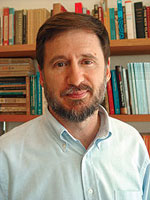
Michael Doyle specializes in international relations theory, international security, and international organizations. Doyle previously served as assistant secretary-general and special adviser to United Nations Secretary-General Kofi Annan from 2001 to 2003. His responsibilities included strategic planning (Millennium Development Goals), outreach to the international corporate sector (the Global Compact), and [ ... ]
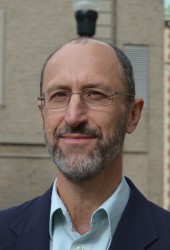
Jack Snyder (Ph.D., Columbia, 1981) is the Robert and Renee Belfer Professor of International Relations in the Department of Political Science and the Saltzman Institute of War and Peace Studies at Columbia. His books include Electing to Fight: Why Emerging Democracies Go to War, co-authored with Edward D. Mansfield; From Voting to Violence: Democratization and Nationalist Conflict; Myths of Empire: Domestic Politics [ ... ]
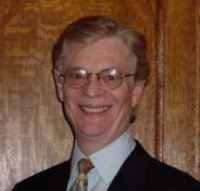
Professor Higgins, the Stanley Schachter Professor of Psychology, works at the intersection of motivation and cognition. He is an expert on motivational models of performance, judgment and decision making. His most recent research addresses the general question, "Where does value come from?", and the more specific question, "What makes a decision good?" He teaches an Executive MBA course on negotiation [ ... ]
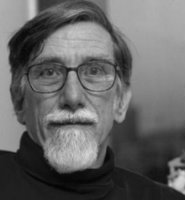
Robert Jervis is the Adlai E. Stevenson Professor of International Affairs at Columbia University. He is a coeditor of the Security Studies Series published by Cornell University Press, serves on the board of nine scholarly journals, and has authored over 100 publications. Dr. Jervis is a fellow of the American Association for the Advancement of Science and the American Academy of Arts and Sciences. He has also served a [ ... ]
.jpg)
My research interests, to date, have focused on regional seismology -- a broad field where one typically analyzes seismic signals recorded at a few tens of kilometers to a couple thousand kilometers to infer geologic structure of the Earth's upper layers, including the crust, to quantify the seismic sources and their implications on regional tectonics, and to characterize the nature of the seismic sources. The results of [ ... ]
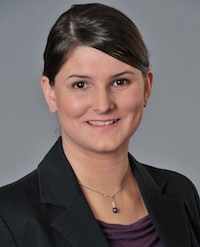
Inga Winkler is a lecturer in the Institute for the Study of Human Rights and the Director of Undergraduate Studies for the Human Rights Program. Previously, she has been in residence as a visiting scholar the Center for Human Rights and Global Justice at NYU, at Stellenbosch (South Africa) and at Berkeley. She is an affiliate of the Economic and Social Rights Working Group at the Human Rights Institute at the Universi [ ... ]
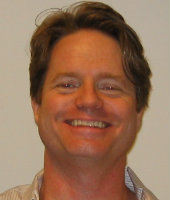
Michael Morris is the Chavkin-Chang Professor of Leadership in the Management Division of Columbia Business School, and a Professor in the Psychology Department of Columbia University. He teaches MBA and executive-level classes on negotiation, decision making and group dynamics. He designed and runs Columbia’s Program on Social Intelligence, which translates emerging research insights into new forms of leadership [ ... ]
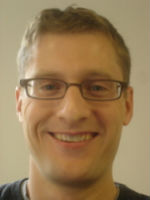
Daniel Corstange (Ph.D., Michigan, 2008) is currently at work on a book project that examines the institutional incentives that privilege coordination on ethnic political coalitions over "policy" coalitions, and the patronage dynamics that result from reliance on ethnic coalitions. Professor Corstange's interests in quantitative methods focus on response bias and eliciting truthful answers to sensitiv [ ... ]
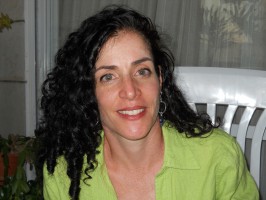
Maya Sabatello is the Director of the Disability Rights in Society Program at Columbia's Institute for the Study of Human Rights. Maya holds a Ph.D. in Political Science from the University of Southern California and an LL.B. from the Hebrew University of Jerusalem. She was appointed a Research Fellow in Medical Ethics (2011-12) at Harvard University’s Medical School. Maya has litigated cases of medical neglig [ ... ]
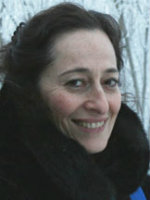
Elsa Stamatopoulou joined Columbia in 2011. Her arrival marked the completion of distinguished service at the United Nations (Vienna, Geneva and New York) with some 22 years dedicated to human rights. Indigenous issues were part of her portfolio since 1983 and she became the first Chief of the Secretariat of the United Nations Permanent Forum on Indigenous Issues in 2003. Last year she taught the first ever course a [ ... ]
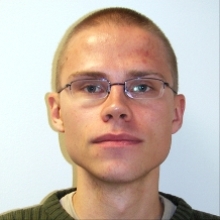
Johannes Urpelainen is an Assistant Professor of Political Science at Columbia University and a Member of the Arnold A. Saltzman Institute of War and Peace Studies. His current research interests include international institution design, global governance, international regulation, democratic accountability, and domestic-international linkages. Urpelainen specializes in international cooperation and political economy; hi [ ... ]
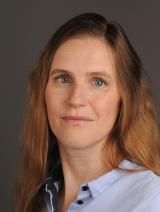
Séverine Autesserre is a an expert in war, peace, peacebuilding, peacekeeping, humanitarian aid, and African politics. She currently works as a Professor of Political Science, specializing in international relations and African studies, at Barnard College, Columbia University. Dr. Autesserre was awarded an AC4 interdisciplinary research award in 2010 and 2011 (competitive renewal) for her work on international interven [ ... ]
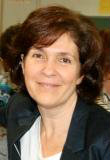
Karen Barkey is Professor of Sociology and History. She studies state centralization / decentralization, state control and social movements against states in the context of empires. In her recent work she has also explored the issue of toleration and accommodation in pre-modern empires. Her research focuses primarily on the Ottoman Empire, and recently on comparisons between Ottoman, Habsburg and Roman empires. Her firs [ ... ]
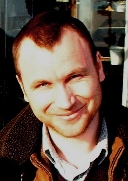
Macartan Humphreys (Ph.D., Harvard, 2003) works on the political economy of development and formal political theory. Ongoing research focuses on civil wars, post-conflict development, ethnic politics, natural resource management, political authority and leadership, and democratic development. He uses a variety of methods including survey work, lab experimentation, field experimentation, econometric analysis, game theoreti [ ... ]

Kimuli Kasara received her Ph.D. from Stanford in 2006. Her dissertation focused on ethnic politics in Africa and on African political economy. Her current work concerns colonialism in East Africa, communal violence and political parties. [ ... ]
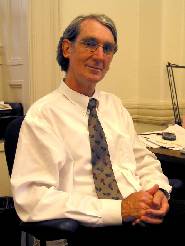
The face of the Earth is figured by continents and oceans whose present shape and positions are transients in the history of the planet. Earth is a dynamic engine of change. It is capable of tearing itself apart and has done so repeatedly throughout its history. The outer layers of the Earth are the solid thermal boundary layer of deep convective motions in the mantle and are primarily responsive to the deeper forces. Jus [ ... ]
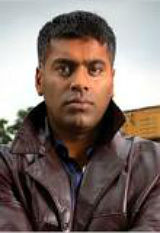
Sudhir Venkatesh is William B. Ransford Professor of Sociology, and the Committee on Global Thought, at Columbia University in the City of New York. His most recent book is Gang Leader for a Day(Penguin Press). Gang Leader received a Best Book award from The Economist, and is currently being translated into Chinese, Korean, Japanese, German, Italian, Polish, French and Portuguese. His previous work, Off the Books: The Und [ ... ]

Jonathan Rieder joined the faculty of Barnard College in 1990 and chaired the department from 1990 through 2003. He previously taught at Yale University and Swarthmore College. In addition to his teaching in the Sociology Department, Professor Rieder is affiliated with Barnard's programs in American Studies, Jewish Studies, and Human Rights Studies. A member of the graduate faculty of Columbia University’s Sociology [ ... ]
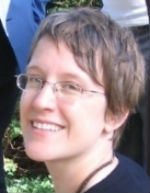
My main theoretical interests lie in semiotic archaeology, and archaeologies of death and the body. I work in historical archaeology and the archaeology of the contemporary past, focusing particularly on nodes of controversy where conflicting sets of beliefs and practices converge. In particular, I am interested in the ways in which negotiations and conflict between actors are mediated through material conditions. To full [ ... ]

I began fieldwork in 1969. I have returned every year. My writing has spanned different things in roughly the following order; two books in Spanish for local people on the history of slavery and its aftermath, and books and articles in academic journals on the: 1) commercialization of peasant agriculture, 2) slavery, 3) hunger, 4) the popular manifestations of the working of commodity fetishism, 5) the impact of col [ ... ]
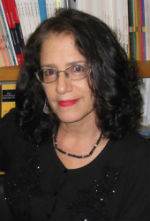
Jean Cohen (Ph.D., The New School for Social Research, 1979) is the Nell and Herbert M. Singer Professor of Political Thought. She specializes in contemporary political and legal theory, continental political thought, contemporary civilization, critical theory, and international political theory. She works on civil society, sovereignty, human rights, gender, and the law. She is the author of numerous books and articles [ ... ]
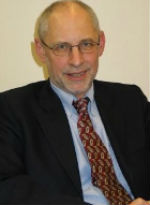
Andrew J. Nathan is Class of 1919 Professor of Political Science at Columbia University. His teaching and research interests include Chinese politics and foreign policy, the comparative study of political participation and political culture, and human rights. He is engaged in longterm research and writing on Chinese foreign policy and on sources of political legitimacy in Asia, the latter research based on data from the [ ... ]
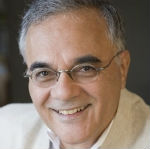
Mahmood Mamdani is the Herbert Lehman Professor of Government. He received his Ph.D. from Harvard University in 1974 and specializes in the study of African history and politics. His works explore the intersection between politics and culture, a comparative study of colonialism since 1452, the history of civil war and genocide in Africa, the Cold War and the War on Terror, and the history and theory of human rights. Prior [ ... ]
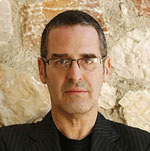
Mark Mazower is a historian and writer, specialising in modern Greece, 20th century Europe and international history. He read classics and philosophy at Oxford, studied international affairs at Johns Hopkins University's Bologna Center, and has a doctorate in modern history from Oxford (1988). His books include Inside Hitler's Greece: The Experience of Occupation, 1941-44 (Yale UP, 1993); Dark Continent: Europe [ ... ]
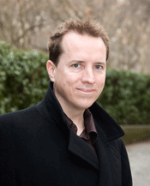
Matthew Connelly, professor, works on the history of eugenics, migration, and birth control. His most recent book, Fatal Misconception: The Struggle to Control World Population, has just been published by Harvard University Press. His research articles have appeared in such journals as Population and Development Review, Comparative Studies in Society and History, The International Journal of Middle East Studies, The Ameri [ ... ]
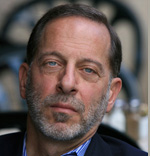
Rashid Khalidi is the Edward Said Professor of Arab Studies at Columbia University. He received his B.A. from Yale University in 1970, and his D.Phil. from Oxford in 1974. He is editor of the Journal of Palestine Studies, and was President of the Middle East Studies Association, and an advisor to the Palestinian delegation to the Madrid and Washington Arab-Israeli peace negotiations from October 1991 until June 1993. Kh [ ... ]
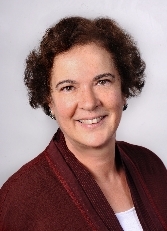
My work, strongly ethnographic and mostly based in Egypt, has focused on three broad issues: the relationship between cultural forms and power; the politics of knowledge and representation; and the dynamics of gender and the question of women’s rights in the Middle East . My first book, Veiled Sentiments, was about the politics of sentiment and cultural expression in a Bedouin community in Egypt that made an argumen [ ... ]